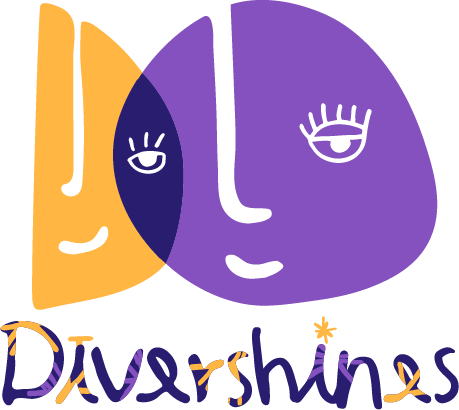How to Choose the Best School for Your Autistic Child? Key Tips

Choosing the best school for your autistic child is a complex decision that directly impacts their development and overall trajectory. In the United States, there are several options available. It is crucial to find one that meets your child’s unique needs and fosters a supportive and inclusive environment. Whether the school is public, private, charter, or specialized, our tips will empower you to make an informed decision that promotes your child’s growth and success.
Understanding Your Child's Needs
- Identify Your Child’s Strengths and Challenges
Every child on the autism spectrum has different needs. It is essential to understand your child’s unique strengths and challenges. Knowing them well will help you identify a school that addresses their specific needs.
- Educational and Social Needs
Remember that the school should meet your child’s educational needs, not your desires as a parent. Look for schools that offer specialized teaching methods and curriculum modifications adapted to autistic students. According to the National Autism Association, social needs are equally important. The chosen school should promote social interaction and engagement with peers.
Types of Schools to Consider
- Public Schools
Public schools are legally required to provide a Free Appropriate Public Education (FAPE) to students with disabilities. They have Individualized Education Programs (IEP) that outline specific goals and services for your child. However, the quality and availability of these services can vary. These institutions are accessible and equipped with the necessary special education resources.
- Private Schools
Although they can be costly, many private schools offer scholarships or financial aid. If you are in Florida, Step Up scholarships might be an alternative. Private schools can provide individualized attention and smaller class sizes. Some private institutions specialize in autism education, offering tailored programs and therapies. The Autism Society of America highlights that private schools often have more flexibility in their teaching methods, which can be beneficial for autistic children.
- Charter Schools
Charter schools are publicly funded but operate independently. Some have more flexibility in their curricula or even specific programs for autistic students. The National Center for Special Education in Charter Schools (NCSECS) notes that these schools can offer innovative approaches to education, though availability varies by region.
- Specialized Schools
Designed specifically for autistic children, these schools provide tailored education and therapies, ensuring a comprehensive approach to your child’s development. Resources like Autism Speaks can help you find specialized schools in your area. These schools often have lower student-to-teacher ratios and staff trained in specific autism strategies.

Visiting and Evaluating Potential Schools
- Schedule School Visits
According to Understood.org, it’s important to visit schools during school hours to get a true sense of the environment and routines. This step is crucial. Observing classrooms, meeting teachers, and seeing the facilities should be a priority in making a decision.
- Questions to Ask During Visits
Prepare a list of questions on all the topics you want to cover. Remember, information is power. Clarify any doubts to ensure the chosen school is the best fit for your child. Include key questions like, “How does the school handle shutdowns and meltdowns in autistic children?” You can read more about these topics in our articles titled “Shutdowns and Autism“ and “Meltdowns an Autism”.
- Seek Feedback from Other Parents
Carefully review the school’s feedback, connect with other parents, and join support groups to gather information. The Autism Society of America suggests leveraging these networks to learn from other parents’ experiences, which can help inform your decision.

Making the Decision
- Compare Your Options
Choosing the best school for your child is crucial to their educational experience and development. Do thorough research, gather all the information, create a comparative chart, and take quality time to make a well-informed decision.
- Trust Your Instincts and Your Child’s Opinion
Ultimately, trust your instincts. As a parent, you know your child best. Involve your child in the decision-making process as much as possible. According to Autism Parenting Magazine, involving your child can help ensure they feel comfortable and supported in their new school environment.
Choosing the best school for your autistic child will not be a quick decision. It is a process that takes time and extensive research. Focus on your child’s needs, not yours, explore various options, and always think about their well-being. Trust your instincts and involve your child as much as possible. Finding the right school can make a profound difference in your child’s educational experience, helping them thrive academically, socially, and emotionally.
Frequently asqued questions
The student-to-teacher ratio is crucial as smaller ratios allow for more individualized attention, which can enhance the learning and socialization of autistic children.
Specialized schools offer tailored education and therapies, lower student-to-teacher ratios, and staff trained in specific autism strategies, providing a comprehensive approach to development.
Yes, many private schools offer scholarships or financial aid to make their programs more accessible to families.
Join local or online support groups for parents of autistic children to gather feedback and learn from their experiences.
Family and community support are essential to providing resources, training, and support to individuals on the autism spectrum and their families throughout their lives.
REFERENCES
- Autism Speaks: School Community Toolkit
- National Autism Association
- U.S. Department of Education: Special Education Services
- Autism Society of America
- National Center for Special Education in Charter Schools (NCSECS)
- Council for Exceptional Children
- American Speech-Language-Hearing Association (ASHA)
- Understood.org: School Visits and Evaluations
- Autism Parenting Magazine


